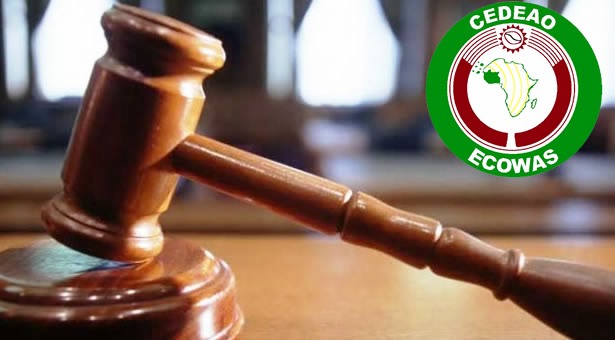The Federal Republic of Nigeria has been ordered by the ECOWAS Court of Justice to pay Oluwatimilehin Adebayo ₦5 million in reparations for the infringement of his right to be free from torture.
The court also ordered Nigeria to conduct a prompt, impartial, and effective investigation into the torture and prosecute those responsible.
Adebayo, in a suit marked (ECW/CCJ/APP/47/23), accused some police officers from Ogun State of subjecting him to severe physical abuse, including beating him with the handle of an axe and tying his limbs with chains to a pole.
He said this ordeal caused him physical injuries, including trauma to his scrotum, and left him suffering from significant psychological distress.
However, the respondent, the Nigerian Government, challenged the jurisdiction of the Court, arguing that the case was filed outside the three-year limitation period stipulated under the Court’s rules, rendering it statute-barred.
It also argued that the Court lacks jurisdiction to hear the matter, arguing that it would involve reviewing a case that is either pending (sub judice) or already decided by a municipal court within the respondent state.
However, the court, in its judgment sent to our correspondent via email on Thursday, dismissed Nigeria’s preliminary objections, asserting its jurisdiction to hear human rights cases.
It clarified that the three-year limitation period under Article 9(3)(b) of the Court’s Protocol does not apply to cases of human rights violations.
In the judgment delivered by Justice Dupe Atoki, the court held that these acts constituted torture, violating Article 5 of the African Charter on Human and Peoples’ Rights, to which Nigeria is a party.
“The Court noted that the torture was intentional and aimed at coercing Mr. Adebayo into signing a pre-written statement. Consequently, it ordered the Federal Republic of Nigeria to pay ₦5 million in compensation to the applicant for the violation of his right to freedom from torture.
“It also ordered Nigeria to conduct a prompt, impartial, and effective investigation into the torture and prosecute those responsible.
“However, the Court dismissed the claim that the applicant’s right to a remedy had been violated, noting that there was no evidence the applicant had formally reported the abuse to relevant authorities,” it added.





![Late Chinyere Gladys Mbakwe Set For Burial Feb. 20 In Umuahia [SEE POSTER] Mrs. Chinyere Gladys Maduabuchi Mbakwe Set For Burial Feb. 20 In Umuahia [SEE POSTER]](https://abntv.com.ng/wp-content/uploads/2026/02/FB_IMG_1771516412563-300x194.jpg)




![Late Chinyere Gladys Mbakwe Set For Burial Feb. 20 In Umuahia [SEE POSTER] Mrs. Chinyere Gladys Maduabuchi Mbakwe Set For Burial Feb. 20 In Umuahia [SEE POSTER]](https://abntv.com.ng/wp-content/uploads/2026/02/FB_IMG_1771516412563-100x75.jpg)